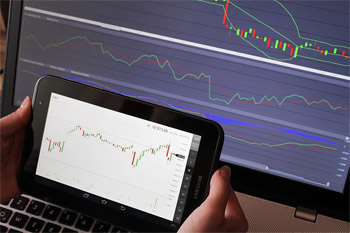What is CFD Trading and How do You Trade Contracts For Difference?

What is CFD Trading and How do You Trade Contracts For Difference?
Forex trading is not for everyone. For some, it's just not an investment option. Many alternatives do exist, some of which are very effective and perfect for beginners. CFD trading is one of the options you've probably heard of. But what is CFD trading?
CFD trading defined
CFD stands for Contracts For Difference. A CFD refers to an agreement to exchange the difference in value of a particular asset from the time the contract is opened, until the time at which it is closed.
With a CFD, you can benefit without ever actually owning the asset you are trading. This is what is referred to as a derivative product, which means its value is based on an underlying asset.
You're probably wondering how this works. Can you really make a profit without ever owning the asset you trade?
How CFD trading works
When you trade CFD, you are essentially predicting whether an asset's price is going to rise or fall. When you think an asset will rise, you 'go long", opening a buy position. The performance of the market then determines whether you profit, and how much of a profit you make. Of course, the further the market rises, the more you make. Conversely, the further it falls, the more you lose.
With many brokers, you have the option to trade CFDs on a huge range of markets, and not just Forex. You can even trade options such as stock indices, which are not accessible to trade directly.
The major pitfall in trading CFDs is the corollary of one of the major draws. CFDs are a leveraged product, and while you can make big profits, you can also make losses that surpass your initial deposit.
Calculating profit and loss on your CFD account
When you choose to trade contracts, the number you trade is completely up to you. The value of each contract depends on the different markets. You simply find the worth per point of movement in the underlying index. For example, one contract of FTSE 100 is worth £10. Therefore, a drop of 1 point results in a £10 loss, whereas a rise of 1 point results in a £10 profit.
Reasons to trade CFD
There are several reasons for trading CFD.
Direct market access (DMA). This allows you to trade directly into the underlying order book of equity exchanges around the world. It gives you access to a huge range of markets, specifically: shares, options, Forex CFD, commodities and interest rates.
Benefit from falling markets. It is very easy to benefit from falling as well as rising markets when trading CFDs.
Short-term trading. CFDs are well suited to short-term trading. You can capitalise on short-term market volatility without ever putting up a large starting investment.
Risks of trading CFD
CFD trading can be risky. If the market moves against you, the value of your position will reduce. This is no different from traditional trading, but since CFDs are leveraged products, you can lose much more than your initial investment.
Is CFD trading ideal for you? Knowing the benefits and pitfalls will help you decide.
MORE



